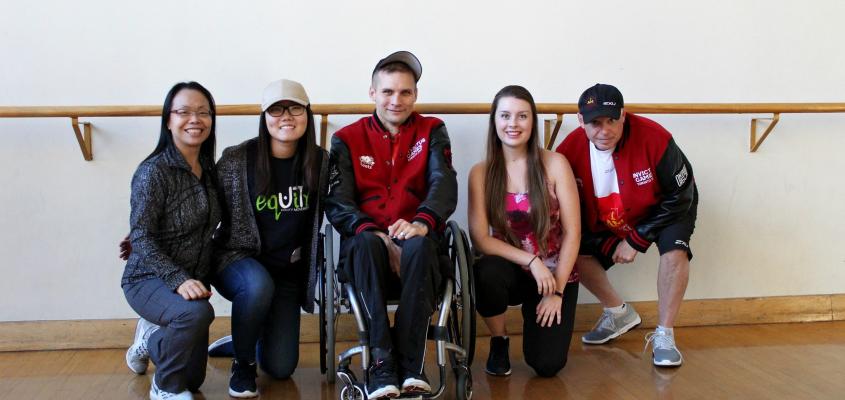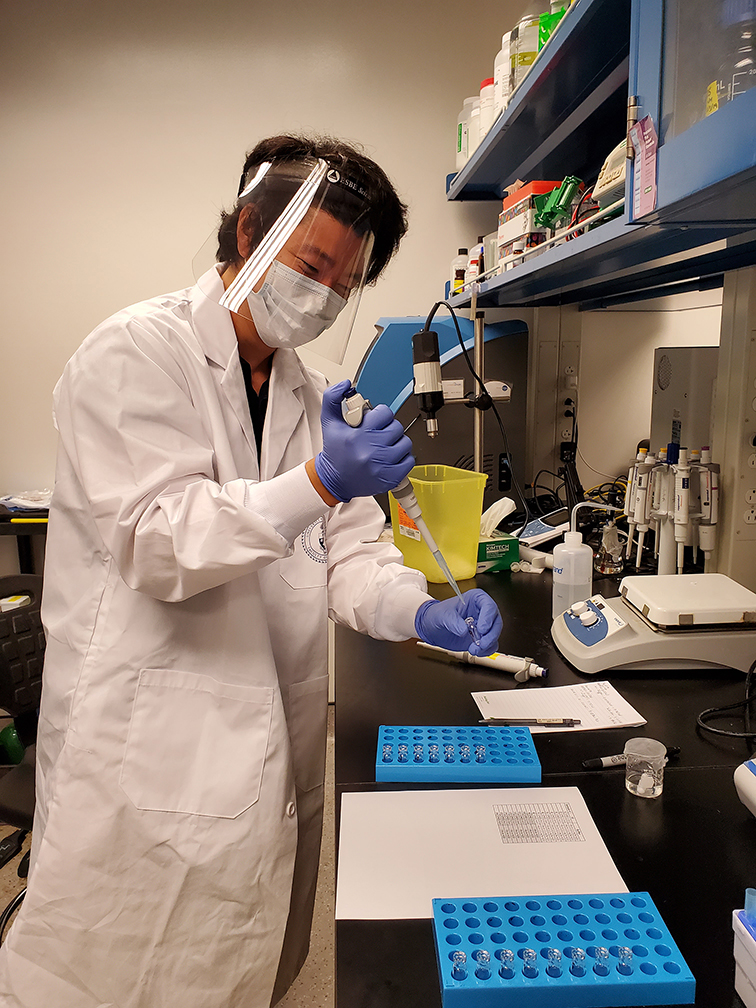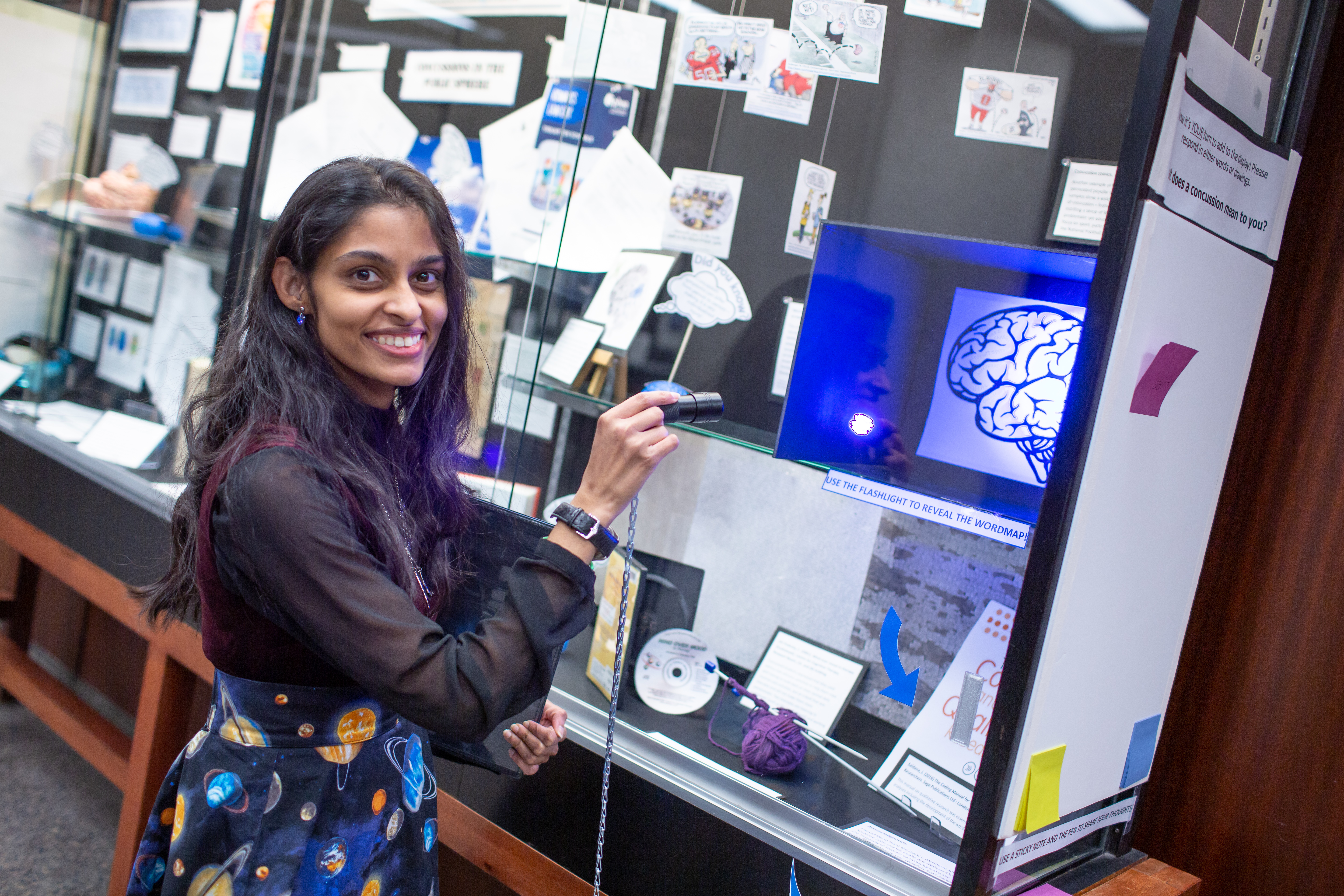Concussion prevention, metabolism and sport science, sport policy, perceptual-motor behaviour … these are only some of the areas of research conducted in various laboratories at the University of Toronto’s Faculty of Kinesiology and Physical Education (KPE). This week, undergraduate students at the Faculty had the opportunity to connect with graduate students doing work in these and other areas of research in a virtual meeting dubbed KINections Research Labs Café.
KINections, launched at the start of the COVID-19 pandemic to keep KPE students connected and engaged, has been offering a variety of programs and events designed by students for students, including a webinar on research opportunities at the Faculty before the winter holidays. The event was so well received, the organizers, led by graduate student Zeana Hamdonah, decided to run it on a regular basis in the New Year with more panelists involved. Here are just a few of their stories.

Roxy O’ Rourke completed both her undergraduate and master’s degrees at KPE, before moving on to her PhD. As an undergrad, she was looking for ways to get involved and volunteered to help plan Play the Game, an adapted physical activity tournament. Next year, she applied for a work/study position and had the opportunity to plan the whole tournament.
“This experience exposed me to adapted sport and I reached out to KPE Associate Professor Kelly Arbour-Nicitopoulos, whose research revolves around physical activity and disability,” says O’Rourke.
She did a third year undergraduate research course with Arbour-Nicitopoulos, looking at the social participation impacts of the Faculty’s Sensory Motor Instructional Leadership Experience (SMILE) program.
Wanting to broaden her horizons, O’Rourke did a fourth year undergraduate research project with KPE Assistant Professor Daniel Santa Mina, working with a PhD student he was co-supervising, Anika Petrella, on a sport-based supportive care program for testicular cancer survivors. Through this work, she met Petrella’s primary supervisor, KPE Professor Catherine Sabiston and ended up working as her research assistant in the Mental Health and Physical Activity Research Centre (MPARC) over the summer, before starting her master’s with Arbour-Nicitopoulos in the fall.
Now in her PhD program with Arbour-Nicitopoulos as her primary supervisor, O’Rourke continues to be involved with Sabiston, saying she feels passionate about the work they both do.
Her research is focused on exploring the mental health benefits of physical activity and sport for populations with disabilities and chronic health conditions. She is focusing specifically on body image of adolescent and young adult athletes with physical disabilities, while also working on projects focusing on the experiences of sport and belonging for young adults with intellectual disabilities, the relationship between physical activity and flourishing in first year university students, mental health/body image of adolescent and young adult cancer survivors, and the relationship between physical activity and anxiety in children with disabilities.
“I wanted to share my path to grad school with undergraduate students because it wasn’t one that I expected or felt compelled to pursue when I was an undergrad,” she says. “I hope they were able to see how grad school can open new doors through the many opportunities for cross-lab and cross-disciplinary/external collaborations.”

Hugo Fung began his journey at U of T as an undergraduate student in life sciences, wanting to become a medical doctor. In his fourth year, he applied for a work study position in the department of physical therapy/rehabilitation sciences with Associate Professor Sunita Mathur. When he didn’t get it, he asked to volunteer in her lab and that’s where he happened to meet Assistant Professor Andy Wong from the Dalla Lana School of Public Health. Impressed with Fung’s enthusiasm, Wong offered to be his undergraduate thesis supervisor.
Fung’s undergraduate thesis project focused on looking at the interaction between musculoskeletal health assessed by different medical imaging modalities and fracture risk. After graduating, Fung spent another year and a half training and working with Wong as a research assistant.
“It was then that I realized my passion for research and the excitement of finding solutions to different research questions,” he says. “However, I also realized that medical imaging and bone health was not my top research interest.”
Around that time, Fung was starting to get interested in the relation between physical activity, nutrition and health outcomes, reading research papers about these topics in his spare time. He came across the work of KPE Assistant Professor Daniel Moore, an expert on skeletal muscle remodeling and protein metabolism.
The rest is history, as they say. After completing a master’s degree with Moore at KPE, Fung is now a PhD student in Moore’s Iovate/Muscletech Metabolism and Sport Science lab, conducting research on the influence of physical activity/inactivity and nutrition on skeletal muscle metabolism and remodeling, in both young and aging populations, through the use of stable-isotope tracers.
“Research can sound daunting and intimidating, especially for undergrads who have not been involved in it before,” he says. “But, as Wayne Gretzky once said, ‘You miss 100 per cent of the shots you don't take.’ I would just add that if you fail or get rejected the first time you try to do something, don’t look at it as the end, but rather as an opportunity to learn and improve yourself.’”

Sandhya Mylabathula started off as an undergraduate student in Arts and Sciences, doing a double major in human biology and nutritional sciences, but took courses in KPE as she was very interested in sport-related sciences.
“In fourth year, I started working with my sister Swapna, also an Arts and Science student at the time doing a special degree year at KPE, on concussion policy and advocacy - a topic I became passionate about in part due to my existing passion for hockey,” says Mylabathula. “In doing this work, I realized just how many gaps there were in the concussion literature, and I wanted to not just identify them, but contribute to addressing them.”
She took a course that required her to do a research project (PHE390), which helped her get a taste of what research was like - and she was hooked.
Currently a senior PhD student at KPE studying under the supervision of KPE Associate Professor Lynda Mainwaring, Mylabathula wants to encourage undergraduate students to try to get some experience in research to see if they enjoy it and find a topic they are passionate about if they wish to pursue graduate studies.
“Start with a small project that involves research to understand the process, gain experience and explore,” she says.
Mylabathula believes that research not only adds to our knowledge on a variety of topics, but also helps to develop useful skills such as critical thinking and analysis, organization and writing that can be applied in both academic and non-academic professions, and inform practice.
“But I especially wanted to share my passion for my field and for research in general – the ability to create knowledge, share it through outreach and community engagement, and use it to make an actionable difference is especially appealing to me.”
Students also heard from the following panelists:
Sadiya Abdulrabba, a second year master’s student, investigating how tactile sensory information is used to guide voluntary movement corrections with KPE Assistant Professor Luc Tremblay;
David Brown, a first year PhD student doing research in the Health Behaviour and Emotion lab under the supervision of Professor Catherine Sabiston; and
PhD student Catherine Houston, studying with KPE Assistant Professor Simon Darnell in KPE’s Centre for Sport Policy Studies.
The KINections program is proudly sponsored by U of T affinity partner, Manulife.
